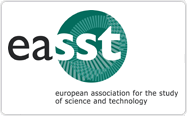Travelling Frictions
Global Disease Self-Management, Local Comparisons and Emergent Patients
DOI:
https://doi.org/10.23987/sts.55299Abstract
Contemporary disease self-management programs aim to renegotiate the terms on which patients participate in their own health care. Though the notion of ‘patient 2.0’ has mainly been used to speak to patient empowerment through IT, we therefore propose to view self-management as eliciting “the patient” in a different shape. In this paper, we explore the embedded assumptions, imagined potentials and concrete practices of the Stanford Chronic Disease Self-Management Program (CDSMP), in order to understand how this program reconfigures a particular form of global patient. To analyse this process we consider the CDSMP as a traveling technology. First, we demonstrate that its successful globalization has been enabled by tying together specific forms of theorizing, evidence-basing, and scripting in a theory-methods package. Second, we show that the globalization of the program entails various forms of localization in the national health care setting of Denmark. In this context, we examine different kinds of efforts required to maintain the ‘global’ identity of the program even as it is ‘localized’. In particular, we show that the insertion of the program into Danish health care generates frictions. Such frictions are brought to light comparatively as Danish health care policy-makers, practitioners, consultants and chronic patients engage with and reflect upon the characteristics of the program. We argue that this analysis holds implications for ‘patient 2.0’, both as practical accomplishment and as a conceptual tool for social studies of medicine and health care.





